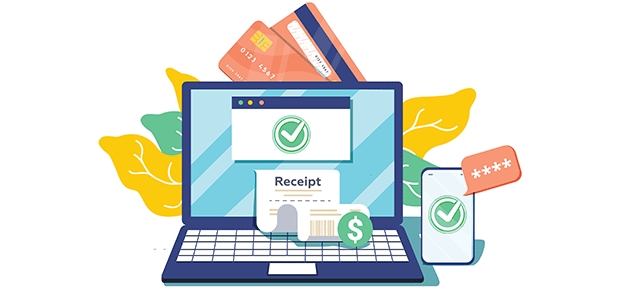
Why self-employed startups need to make tax digital sooner rather than later
2020 saw an uptick of newly registered businesses, with almost half a million (468,371) being registered in the UK, with the most popular startup being in the retail sector. In 2020, there were six million private sector businesses in the UK, up by 112,700 compared to 2019.
Whether furloughed or having extra time cutting out the daily commute, the pandemic gave people more time on their hands. Some fell back in love with their once-abandoned hobbies, some learnt new skills and others became more entrepreneurial and decided to take the leap to make their pastime more full-time.
If you are one of those people, well done! You took the giant leap, much like myself, but like any new venture, there are many things you learn along the way. I certainly have!
There is an array of important information a fresh-faced entrepreneur needs to consider and managing finances is always a big concern, including the all-important and sometimes troublesome: tax. But before you start taking tax notes, there is a big change on the horizon.
Making tax digital
As a bid to make things simpler and better integrated, HMRC introduced Making Tax Digital (MTD) - the biggest change to UK tax returns in the last few decades.
Sole traders and landlords with income above £10,000 will be waving goodbye to HMRC’s website and will be required to use compatible software to keep digital records and send HMRC updates for their Income Tax every three months. Businesses registered for VAT will also be required to submit their VAT returns using MTD compatible software.
‘Real-time’ tax reporting aims to make tax easier, more up-to-date and more streamlined, essentially an effective way for businesses to get a head start on their expenses and income.
For this to be effective, an intuitive system is vital. Going digital could easily eradicate many issues by simply uploading bank statements or a spreadsheet of your transactions and quickly categorising income and expenses; in essence, an intelligent software system can prepare your tax return for you.
You can even submit directly to HMRC, as well as retrieve information that they already hold such as any income from a job or previous payments.
Businesses that embrace and implement MTD across their tax processes will benefit from better reporting and fewer errors, but it still must be managed effectively, appropriately, and of course, with the correct, HMRC compatible software.
Why businesses need to start preparing now
A top concern for new business owners is managing and understanding their finances. Many will be conscious of meeting HMRC requirements as businesses that fail to comply will incur points that can eventually lead to fines. Four accumulated points for missed quarterly Income Tax updates will lead to a fine, so it is vital SMEs are up-to-date and on top of their taxes.
Things run the risk of becoming a rushed frenzy if you wait until the last minute to organise expenses and taxes. Not only would you need to submit your tax return as normal, but you'd also then have to quickly get up to speed with MTD soon after. Familiarising yourself with the digital system will ease any stress when the time comes, to avoid a frantic tax submission.
To avoid fines and any bumps in the road for admin which will become mandatory in the next couple of years, it is best to get a head start now.
The power of digitisation
It is hard for businesses in this era to survive without relying on tech. Half of small companies (49%) that utilise technology agree that digital platforms have allowed their businesses to compete more effectively against larger brands in their sector, and 61% agree that technology and digital platforms have helped their business to expand.
So, businesses that take the plunge investing in digital technology unveil the wider benefits such as improved security, lower IT costs, and easier mobile access.
MTD is not just to make tax easier. Digitalising records will help sync all financial data, which will allow for greater data accuracy and flexibility. This will arm business owners with invaluable information about their finances and growth, allowing them to gain better control of their business. Keeping on top of expenses is key for a business’s survival and digitalising records can help with this.
Cloud-based storage and security also support this. You can safely access your accounts from anywhere, via any device. HMRC’s initiative wants to ‘make it easier for individuals and businesses to get their tax right and keep on top of their affairs’. Being able to access accounts from anywhere means no last-minute rush to get tax in order. Nonetheless, ensure your encrypted data is secure and only use software that is HMRC-recognised.
A system that categorises and allocates expenses helps you see exactly where your money is going. Viewing your profit and tax liability estimates in real-time, and completing your tax return automatically, with zero hassle, will free up time to focus on more interesting parts of your business.
Tax no longer needs to be associated with last-minute expenses and stress. Covid-born businesses and their owners can focus on making their business flourish and letting intuitive software like Apari’s take care of cumbersome tasks.


